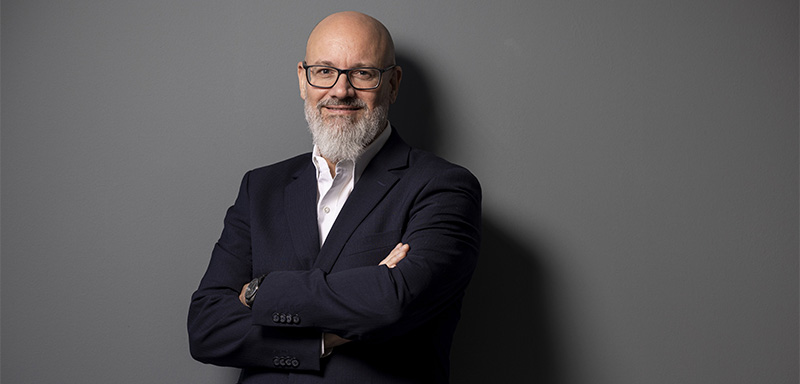Success, responsibility, vision - hardly any other role in a company combines as many facets as that of the Chief Executive Officer (CEO). He or she is not only the top executive, but also sets the vision, paves the way for growth and manages crises.
But what makes a successful CEO? What tasks characterize their day-to-day work? And what skills are essential to get to the top? A look behind the scenes of one of the most demanding and exciting positions in business.
What is a Chief Executive Officer (CEO)?
A CEO bears overall responsibility for the success of a company. He sets the strategic goals, makes groundbreaking decisions and inspires the management team. They act as the central interface between the Executive Board, investors, employees and external partners. Their task is to ensure that the company is future-proof and to ensure sustainable growth.
Chief Executive Officer: Key Facts
|
Education
|
Hard Skills
|
||
|
Further training
|
Soft skills
|
||
|
Salary
|
Related professions
|
How do you become a Chief Executive Officer?
The path to the top of a company is often long and characterized by diverse experiences. Successful CEOs have usually held several management positions and have extensive industry and management experience. A degree in business administration, management or similar fields often forms the basis, supplemented by an advanced degree such as an MBA.
Practical experience in different areas of the company, continuous training and building a strong professional network are crucial. In this context, mentoring programs and executive coaching also play an important role in developing the necessary leadership skills and preparing for the challenges of being a CEO.
For reasons of better readability, the article does not use female and male language forms simultaneously and uses the generic masculine. All personal designations apply equally to all genders.
What tasks does a Chief Executive Officer perform?
The tasks of a CEO are varied and demanding. They include, among other things:
Strategic corporate management
- Development and implementation of long-term corporate goals and strategies
The CEO defines the company's vision and sets strategic goals that ensure both short-term success and sustainable growth. Market analyses, competitive comparisons and technological trends are taken into account in order to set the course for the future. - Identification of new market potential and fields of innovation
By continuously monitoring industry trends and customer needs, the CEO recognizes new business opportunities. He evaluates potential fields of innovation and decides in which areas it makes sense to invest. On this basis, the CEO can expand the product or service portfolio.
Operational management
- Optimization of business processes and control of operational business
The CEO is responsible for the overarching direction of the company and ensures that operational processes are efficient and targeted. He defines the strategic guidelines within which the management team optimizes processes, reduces costs and increases quality - based on clear KPIs and continuous analysis. - Responsibility for budget planning, investment decisions and risk management
Working closely with the finance department , the CEO develops budgets, makes groundbreaking investment decisions and devises clever strategies to minimize risk - keeping the company on course even in volatile market phases.

Our seminar recommendation
High impact leadership for executives
Leading at the top requires vision, impact and strategic skill. In our exclusive workshop for first-level leaders, you will reflect on your role, delve deeper into key leadership topics and receive inspiration on current trends. Together with Holger Sobanski and Theo Bergauer, you will work confidentially and practically on your personal leadership levers.
training: High Impact Leadership for Executives
Personnel management and corporate culture
- Shaping strong leadership personalities
Bringing the right people on board, developing their potential and equipping them for future challenges - through targeted development, honest feedback and inspiring mentoring, the CEO ensures that the management team continues to drive the company forward in the future. - Promoting a positive and performance-oriented corporate culture
The CEO exemplifies the company's values and creates an environment in which team spirit, innovative spirit and open communication are not only required, but are a matter of course. This creates a culture that retains talent and makes top performance possible.
Representation and communication
- Representing the company to investors, the media and business partners
As the public face of the company, CEOs communicate corporate strategies, successes and visions for the future to the outside world in order to gain the trust of external stakeholders. - Building and maintaining networks
By attending industry events, conferences and networking meetings, CEOs make valuable contacts that can lead to strategic alliances and new business opportunities.
Responsibility in crisis situations
- Decision-making and crisis management
In challenging times, the CEO develops emergency strategies and makes quick, well-considered decisions to ensure the continued existence and stability of the company.
- Reacting quickly to market changes and internal challenges
In the event of sudden changes, the CEO adapts strategies and processes in order to react flexibly and purposefully to new challenges.
CEO: Essential skills and competencies
- Strategic thinking: Recognizing market trends, identifying opportunities and developing long-term visions is essential. Only with strategic thinking can a CEO steer the company in a future-oriented manner.
- Leadership skills: Inspiring leadership, making clear decisions and taking responsibility - these are core qualities for motivating teams and achieving company goals.
- Strong communication skills: Precise and targeted communication is essential for coordinating internal processes and representing the company convincingly to the outside world.
- Financial expertise: A firm grasp of budgeting, investment decisions and risk management enables financial stability and growth to be ensured.
- Innovative spirit: Openness to new technologies and trends as well as the willingness to actively drive change ensure the company's competitive advantage.
- Crisis resistance: Keeping calm in challenging situations and acting quickly and thoughtfully is a crucial skill for a CEO. This enables them to lead the company safely through crises.

Our recommendation
Expert program for GmbH management
The GmbH management has a responsible position in the company. The range of tasks of this position is diverse and correspondingly extensive. It is responsible for the smooth running of day-to-day business and is the point of contact for business partners, banks and shareholders. The management of a GmbH should be aware of the company's financial situation at all times and intervene to control it if necessary. In our expert program for management, you will find all relevant topics from the areas of business administration, strategy, law, leadership and personal development bundled together.
Qualification program: Expert program for GmbH management
FAQs: Chief Executive Officer
How much does a CEO earn?
The annual salary of a CEO varies depending on company size, industry and experience. In Germany, it averages between 120,000 and 260,000 euros gross - in larger, international companies, salaries can be significantly higher.
What skills are essential for a CEO?
In addition to sound business knowledge, strategic thinking, leadership skills, strong communication skills, decisiveness and the ability to manage crises are among the decisive skills.
How do you become a CEO?
Becoming a CEO requires a combination of comprehensive training, many years of management experience, continuous further training and the development of a strong professional network. Executive coaching and mentoring can provide additional support along the career path.
¹ Source: https://www.stepstone.de/gehalt/CEO.html, last accessed on 12.03.2025.




